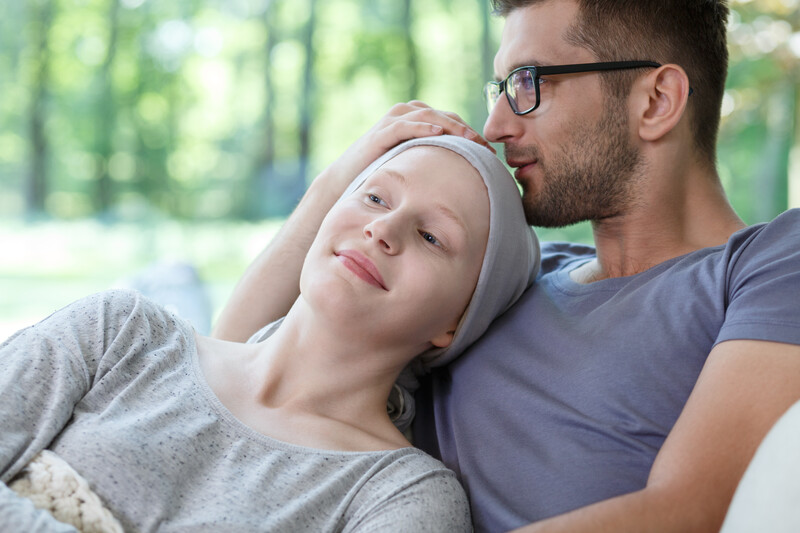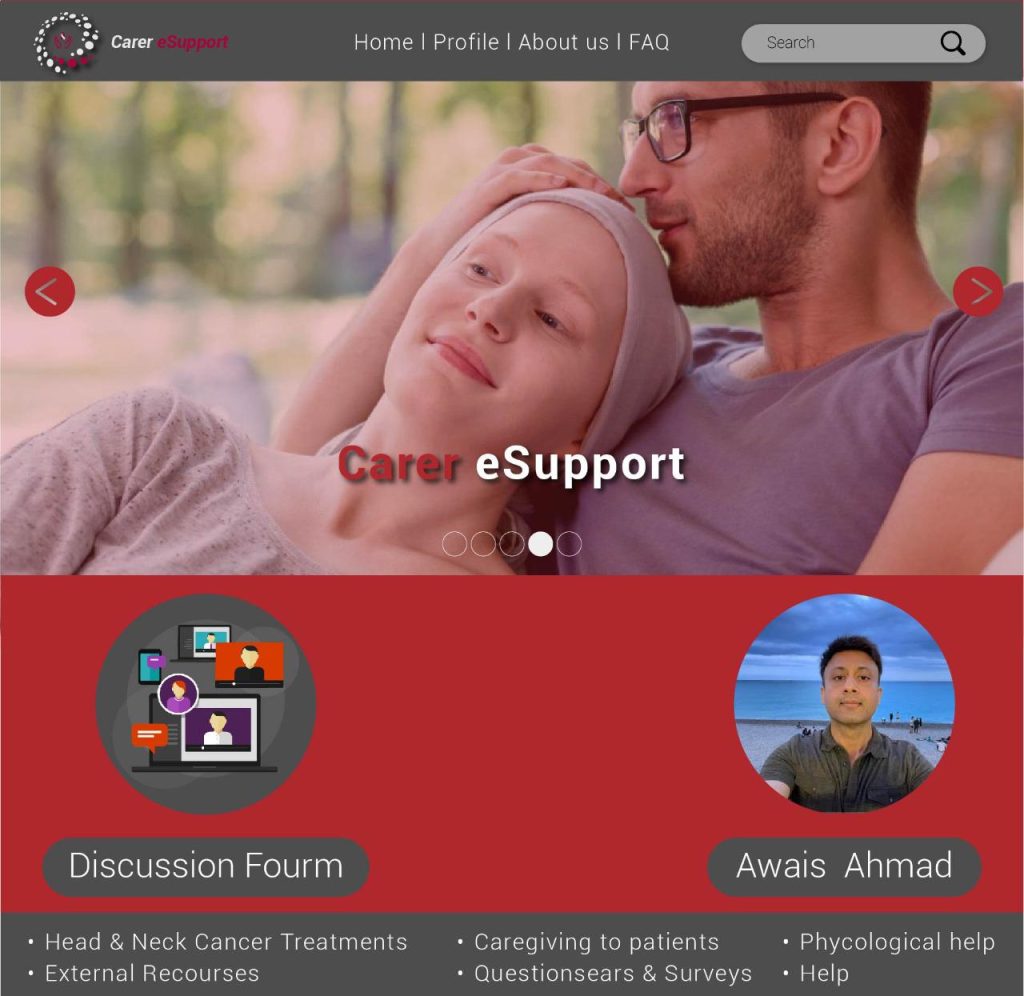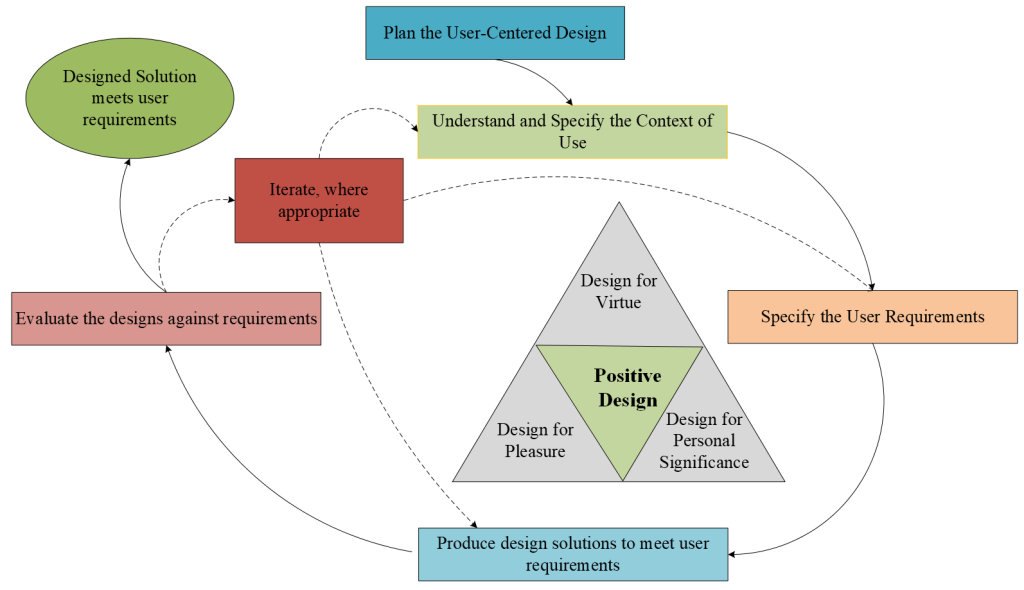
Cancer is a devastating disease that affects not only the patient but also their informal caregivers, who play a crucial role in caring for them, especially in the home environment. The role of a caregiver can be physically and emotionally exhausting, leading to stress, anxiety, depression, and post-traumatic stress disorder. With limited resources and information available to informal caregivers, the situation becomes even more challenging. In this context, eHealth applications might help caregivers to cope with their caregiving responsibilities and enhance their well-being.
Carer-eSupport project
The Carer-eSupport project is a commendable effort to provide support to informal caregivers of head and neck cancer patients. I am part of the Carer-eSupport project as a PhD student. The project’s overall goal is to prepare caregivers for their caregiving role and decrease their caregiving burden who often struggle to balance their caregiving responsibilities with their personal and professional lives.
In this project, we first gathered user needs and preferences from caregivers and healthcare professionals to ensure that the intervention is user-friendly, effective and acceptable. Based on these findings, the first version of Carer-eSupport is developed, followed by feasibility studies to evaluate its effectiveness and acceptability. The results from these studies will inform the design of the second version of Carer-eSupport. Thereafter, it will be tested through a randomized controlled trial, which will provide robust evidence of the intervention’s effectiveness. The project’s study protocol, “Internet-based support for informal caregivers to individuals with head and neck cancer (Carer-eSupport): a study protocol for the development and feasibility testing of a complex online intervention,” provides more detailed information. By prioritizing the needs and well-being of caregivers, the Carer-eSupport project has the potential to make a significant impact on the lives of informal caregivers of head and neck cancer patients.

User-centred Positive Design (UCPD) framework
To support informal caregivers’ subjective well-being, we proposed a User-centred Positive Design (UCPD) framework that combines User-Centred Design (UCD) and Positive Design Framework (PDF) as shown in the figure below. UCD is a systematic approach that considers users and their needs in all steps of design and development. PDF, on the other hand, describes how design can enhance the subjective well-being of users. By focusing on the subjective well-being of users, the UCPD framework aims to create eHealth applications that not only solve the user’s problem but also have a long-lasting and positive impact on their well-being.

In conclusion, the UCPD framework provides a theoretical framework for designing internet-based support systems that have a positive, holistic impact on users’ well-being. The Carer-eSupport project serves as an excellent example of how the UCPD framework can be applied in designing eHealth applications for informal caregivers of cancer patients. With further research, the UCPD framework has the potential to enhance the subjective well-being of users across various domains of healthcare.
Research Team
Our research team comprises researchers from different disciplines, including human-computer interaction (HCI), software engineering, cancer nursing, and medical research. Following are the team members.
- Birgitta Johansson (Project Leader)
- Associate Professor at Department of Immunology, Genetics and Pathology, Cancer Precision Medicine , Uppsala University
- Åsa Cajander
- Professor at Department of Information Technology, Vi3; Human Machine Interaction, Uppsala University
- Ulrica Langegård
- Researcher at Department of Immunology, Genetics and Pathology, Cancer Precision Medicine, Uppsala University
- Ylva Tiblom Ehrsson
- Associate Professor at the Department of Surgical Sciences, Otorhinolaryngology and Head and Neck Surgery, Uppsala University
- Maria Carlsson,
- Associate Professor at Department of Public Health and Caring Sciences, Lifestyle and rehabilitation in long-term illness, Uppsala University
- Awais Ahmad
- PhD student at Department of Information Technology, Vi3; Human Machine Interaction, Uppsala University
Further readings
- Ahmad, A., Cajander, Å., Johansson, B., Tiblom Ehrsson, Y., & Langegård, U. (2022). Designing for Human Well-Being: A Case Study with Informal Caregivers of Individuals with Cancer. In Challenges of Trustable AI and Added-Value on Health (pp. 214-218). IOS Press.
- Langegård, U., Cajander, Å., Carlsson, M., von Essen, L., Ahmad, A., Laurell, G., … & Johansson, B. (2022). Internet-based support for informal caregivers to individuals with head and neck cancer (Carer eSupport): a study protocol for the development and feasibility testing of a complex online intervention. BMJ open, 12(5), e057442.
